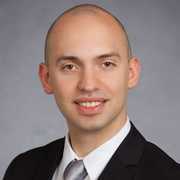02 Sep Low Risk of Pneumocystis Pneumonia in Autoimmune Blistering Diseases
MedicalResearch.com Interview with:
Kyle T. Amber, MD
Department of Dermatology
UC Irvine Health
Irvine, CA 92697
MedicalResearch.com: What is the background for this study? What are the main findings?
Response: Patients with autoimmune blistering diseases often requires significant immunosuppression in order to control their diseases. Pneumocystis pneumonia is an opportunistic infection that occurs in immunocompromised patients. This study was borne out of my observation that most European experts in the treatment of autoimmune blistering disease did not give routine prophylaxis for pneumocystis. Among American dermatologists, there was far more disagreement. This was a collaborative effort of several international tertiary care centers. We demonstrated that the incidence of pneumocystis in 801 patients with autoimmune blistering disease was only 0.1%, which fell well below previous recommendations in the literature suggesting an incidence of 3.5% in order to justify prophylaxis.
MedicalResearch.com: What should clinicians and patients take away from your report?
Response: The incidence of pneumocystis pneumonia in patients with autoimmune blistering disease is very low.
MedicalResearch.com: What recommendations do you have for future research as a result of this study?
Response: Routine prophylaxis for pneumocystis in autoimmune blistering disease patients is not recommended.
No disclosures
MedicalResearch.com: Thank you for your contribution to the MedicalResearch.com community.
Citation:
Note: Content is Not intended as medical advice. Please consult your health care provider regarding your specific medical condition and questions.
[wysija_form id=”5″]
Last Updated on September 2, 2017 by Marie Benz MD FAAD

